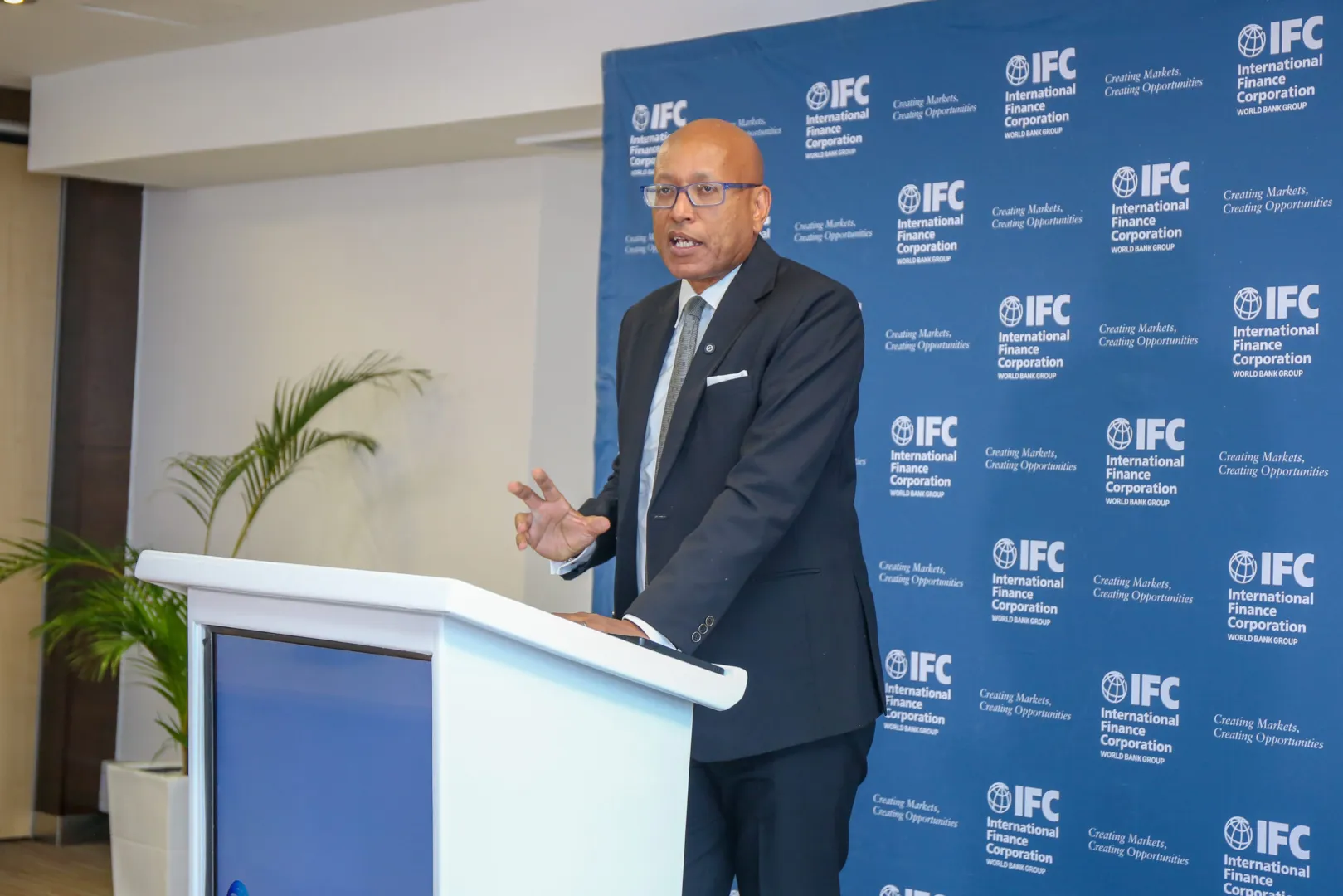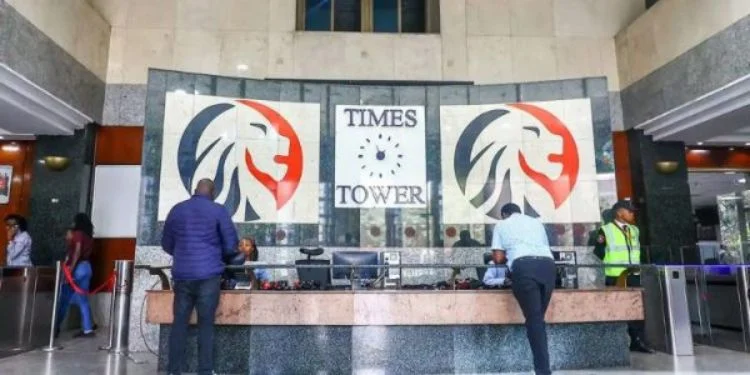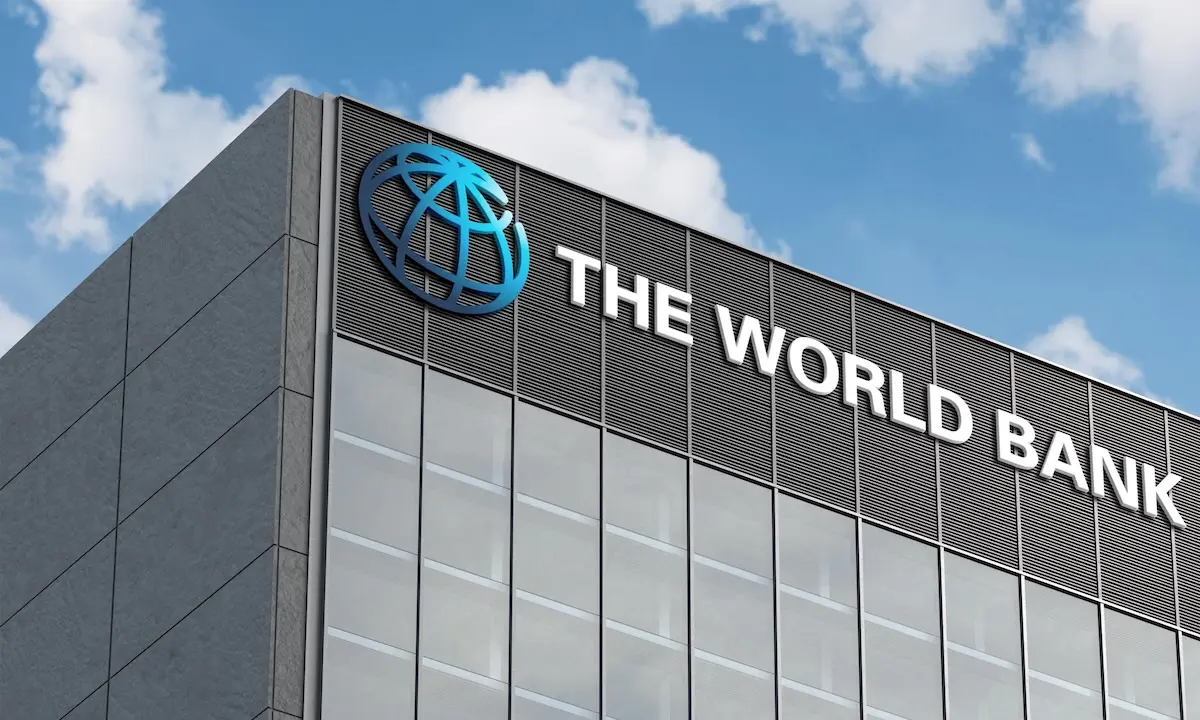Kenya’s telecommunications and entertainment landscape is set for a significant transformation as Axian Telecom of Mauritius moves forward with its acquisition of Wananchi Group, the parent company of popular brands ZUKU and ZukuPay. The deal, which will see Axian acquire a 99.63% controlling stake in the Kenyan broadband and pay-television provider, is being backed by a consortium of international debt investors led by the International Finance Corporation (IFC), the private sector investment arm of the World Bank Group.
Build the future you deserve. Get started with our top-tier Online courses: ACCA, HESI A2, ATI TEAS 7, HESI EXIT, NCLEX-RN, NCLEX-PN, and Financial Literacy. Let Serrari Ed guide your path to success. Enroll today.
IFC Commits $75 Million to Support Regional Telecom Expansion
The International Finance Corporation has announced plans to serve as the anchor investor in a substantial $550 million (approximately KSh 71 billion) bond issuance by Axian Telecom. Of this total financing package, IFC is considering investing up to $75 million (KSh 9.6 billion), representing a significant vote of confidence in both Axian’s regional expansion strategy and the growth potential of East Africa’s telecommunications and digital entertainment sectors.
In an official statement, the IFC outlined the purpose and structure of its investment commitment: “IFC is considering anchoring Axian Telecom’s bond issuance of up to $550 million with an investment of up to $75 million. The financing will be used for refinancing the outstanding bond, financing the acquisition of Wananchi Group, a broadband internet supplier headquartered in Kenya.”
This investment structure demonstrates the growing sophistication of African telecommunications financing, with major transactions increasingly relying on international capital markets and development finance institutions rather than traditional bank lending. The IFC’s participation not only provides crucial capital but also serves as a seal of approval that can attract additional commercial investors to the bond offering.
The dual-purpose nature of the financing—covering both existing debt refinancing and the Wananchi acquisition—reflects Axian’s comprehensive approach to capital management as it pursues aggressive expansion across the African continent. By refinancing existing obligations alongside funding new acquisitions, Axian is positioning itself to optimize its capital structure while capturing strategic assets in high-growth markets.
Wananchi Group: A Kenyan Success Story with Regional Ambitions
Wananchi Group represents one of Kenya’s most significant entrepreneurial success stories in the technology and telecommunications sectors. The company was co-founded by Joe Mucheru, who later served as Kenya’s Cabinet Secretary for Information, Communication and Technology, and the late Njeri Rionge, a pioneering Kenyan entrepreneur and business leader who was widely respected for her contributions to Kenya’s technology ecosystem.
Since its establishment, Wananchi has grown from a startup venture into a major regional player providing integrated telecommunications services across multiple East African markets. The company’s flagship consumer brand, ZUKU, has become synonymous with pay-television and internet services in Kenya, competing directly with established players like Safaricom in broadband provision and international operators in the pay-TV segment.
Wananchi’s service portfolio encompasses three primary business lines that have driven its growth and market positioning. First, the company operates extensive fibre-optic internet infrastructure that delivers high-speed broadband connectivity to residential and business customers across urban centers in Kenya, Uganda, and Tanzania. This infrastructure investment has positioned Wananchi as a serious competitor in markets where internet penetration continues to grow rapidly alongside smartphone adoption and digital service consumption.
Second, Wananchi’s pay-television services under the ZUKU brand compete in a market historically dominated by Multichoice’s DStv platform. By offering competitive pricing, local content options, and bundled service packages combining television and internet access, ZUKU has carved out a meaningful market share despite the competitive intensity of East Africa’s entertainment sector.
Third, the company has developed innovative financial technology products, including ZukuPay, which enable customers to make payments for services and potentially access other digital financial services. This diversification into fintech reflects the convergence occurring across Africa’s telecommunications landscape, where operators increasingly seek to monetize their customer relationships through adjacent services beyond traditional connectivity.
Understanding the Acquisition Structure and Valuation
While the specific purchase price for Wananchi Group has not been publicly disclosed, industry analysts anticipate that the valuation runs into billions of Kenyan shillings, reflecting the company’s substantial asset base, market position, and growth potential. The agreement, originally announced in August 2024, grants Axian Telecom an overwhelming 99.63% equity stake in Wananchi, effectively providing complete operational control while leaving a nominal minority interest outstanding.
The extremely high ownership percentage suggests that Axian’s acquisition encompasses virtually all of Wananchi’s existing shareholders, including both strategic investors and financial stakeholders who have supported the company through various growth phases. This comprehensive acquisition approach avoids the complexity of managing minority shareholder interests and provides Axian with full strategic and operational freedom to integrate Wananchi into its pan-African network.
The transaction structure, financed primarily through the $550 million bond issuance rather than equity capital, demonstrates Axian’s confidence in Wananchi’s cash generation capabilities and the merged entity’s ability to service the resulting debt obligations. Leveraged acquisitions of this nature are common in the telecommunications sector, where predictable subscription revenues and strong cash flows can support significant debt levels.
However, the financing structure also highlights the importance of the IFC’s participation. As a development finance institution with a mandate to support private sector growth in emerging markets, the IFC brings more than just capital to transactions. Its involvement provides due diligence validation, environmental and social safeguards, and potential covenant flexibility that purely commercial lenders might not offer. For other bondholders, the IFC’s anchor investment reduces perceived risk and facilitates syndication of the remaining bond amount.
Axian Telecom: Building a Pan-African Telecommunications Powerhouse
Founded and headquartered in Mauritius, Axian Telecom has emerged as one of Africa’s most aggressive and successful telecommunications consolidators since launching its expansion strategy in 2015. Through a combination of acquisitions, organic growth, and operational improvements, Axian has built a telecommunications empire that now ranks as the sixth-largest mobile network operator on the African continent by subscriber count.
The company’s current operations span multiple markets across East, Central, and West Africa, with particularly strong positions in Tanzania, Uganda, the Democratic Republic of Congo, Comoros, Togo, and Senegal. This diversified geographic footprint provides natural hedges against country-specific economic or regulatory challenges while enabling Axian to leverage scale in equipment procurement, technology deployment, and operational best practices.
Axian’s 41 million mobile customers represent a formidable base for both traditional telecommunications services and adjacent digital offerings. In an era where African telecommunications operators are increasingly seeking to monetize their customer relationships through mobile money, digital content, and financial services, Axian’s subscriber scale provides significant competitive advantages and partnership opportunities.
The Wananchi acquisition fits strategically within Axian’s broader expansion narrative, providing entry into the fixed broadband and pay-television segments that complement its mobile operations. In mature telecommunications markets globally, operators have long recognized the value of converged offerings that bundle mobile, fixed internet, and entertainment services to increase customer lifetime value and reduce churn. Axian’s acquisition of Wananchi positions the company to pursue similar convergence strategies across its African markets.
Moreover, the transaction provides Axian with immediate operational presence in Kenya, East Africa’s largest economy and a strategic telecommunications hub. Kenya’s advanced mobile money ecosystem, high smartphone penetration rates, and relatively sophisticated consumer market make it an attractive target for telecommunications investors. By acquiring an established player rather than building operations from scratch, Axian accelerates its Kenyan entry and avoids the regulatory, infrastructure, and brand-building challenges that greenfield market entry would entail.
Wananchi’s Complex Ownership History and Financial Restructuring
The path to Axian’s acquisition has been shaped by Wananchi’s complex ownership evolution and previous financial challenges that required significant restructuring. The company’s major shareholders have included international telecommunications and media players Altice and Liberty Global Plc, both of which brought industry expertise and capital to support Wananchi’s infrastructure investments and market expansion.
However, in 2022, these strategic investors executed a significant debt-for-equity conversion that fundamentally altered Wananchi’s ownership structure. This financial engineering involved converting outstanding debt obligations into equity stakes, a transaction typically undertaken when companies face challenges servicing their debt or when existing shareholders are unwilling or unable to inject fresh capital through traditional equity investment.
The debt-for-equity conversion had the effect of diluting previous investors’ ownership stakes while providing Wananchi with balance sheet relief by reducing debt obligations and associated interest expenses. For Altice and Liberty Global, converting debt into equity represented a way to maintain exposure to Wananchi’s potential upside while acknowledging the challenges the business faced in meeting its original debt service obligations.
This restructuring history provides important context for understanding the Axian acquisition. Companies emerging from financial distress or balance sheet restructuring often become attractive acquisition targets for strategic buyers who can provide fresh capital, operational improvements, and integration synergies. Axian’s willingness to acquire Wananchi despite this history suggests confidence in the underlying business fundamentals and the ability to drive improved financial performance under new ownership.
Market Position and Competitive Dynamics Across East Africa
Wananchi’s market position varies significantly across its operational footprint, with different competitive dynamics and growth trajectories in each geographic market. Understanding these variations is crucial for assessing the strategic value Axian is acquiring and the potential for future growth.
Kenya: The Core Market
In Kenya, Wananchi’s home market and primary revenue generator, the company’s market share in pay-television services is estimated at between 12% and 18% of total subscribers. This positions ZUKU as a significant but not dominant player in a market where Multichoice’s DStv has historically maintained strong market leadership through premium sports content, exclusive entertainment programming, and extensive decoder penetration.
Wananchi’s internet services division commands an estimated 15% to 20% market share in Kenya’s fixed broadband segment, competing primarily against Safaricom’s fiber-to-the-home offerings, Jamii Telecommunications, and numerous smaller internet service providers. Kenya’s broadband market has experienced explosive growth in recent years, driven by extensive fiber optic infrastructure deployment, declining prices, and increasing demand for data-intensive applications like video streaming, remote work, and online education.
The substantial market share Wananchi has captured in both segments validates its competitive positioning and execution capabilities. However, the company faces ongoing competitive pressure from well-capitalized rivals, particularly Safaricom, which has aggressively expanded its fixed broadband footprint while leveraging its dominant mobile market position for cross-selling opportunities.
One decision can change your entire career. Take that step with our Online courses in ACCA, HESI A2, ATI TEAS 7, HESI EXIT, NCLEX-RN, NCLEX-PN, and Financial Literacy. Join Serrari Ed and start building your brighter future today.
Uganda: Growing Regional Presence
In Uganda, East Africa’s second-largest economy, Wananchi has established a meaningful presence with an estimated 10% to 15% market share in both pay-TV and internet provision. Uganda’s telecommunications market is characterized by lower average revenues per user compared to Kenya but offers significant growth potential given the country’s relatively low internet penetration and expanding middle class.
The Ugandan market presents particular opportunities for integrated service offerings, as consumers increasingly seek bundled packages that provide both internet connectivity and entertainment content at attractive price points. Wananchi’s ability to offer such converged services positions it well to capture growing demand as Uganda’s digital economy continues expanding.
Tanzania: Strategic East African Market
Tanzania represents another significant market within Wananchi’s footprint, providing exposure to East Africa’s third major economy. The country’s large population, improving economic conditions, and government emphasis on expanding telecommunications infrastructure create favorable conditions for broadband and pay-TV providers willing to invest in network expansion and customer acquisition.
Wananchi’s presence in Tanzania also provides natural synergies with Axian’s existing operations in the country, where the Mauritian telecommunications group already operates mobile services. The combination of Axian’s mobile network and Wananchi’s fixed broadband infrastructure could enable compelling quad-play bundles combining mobile, fixed internet, television, and potentially mobile money services.
Malawi: Smaller but Strategic Market
In Malawi, Wananchi’s market share is estimated at between 10% and 15%, representing a more modest but still meaningful presence. Malawi’s smaller economy and population mean that this market likely contributes proportionally less to Wananchi’s consolidated revenues. However, geographic diversification across multiple East and Southern African markets reduces concentration risk and provides exposure to varied growth opportunities.
Previous Regional Expansion Investments
Prior to the current acquisition discussions, Wananchi demonstrated ambitious growth aspirations through significant capital investments in regional expansion. In 2014, the company raised KSh 12 billion specifically to fund geographic expansion beyond its Kenyan home market, establishing operations in Tanzania, Malawi, Zambia, Mauritius, and Uganda.
This substantial capital raising and deployment reflected management’s conviction that Wananchi’s business model and operational capabilities could be successfully replicated across multiple East and Southern African markets. The company’s willingness to invest heavily in infrastructure, licensing, and market entry costs demonstrated long-term commitment to building a regional platform rather than remaining a Kenya-focused operator.
However, regional expansion in Africa’s telecommunications sector presents significant challenges, including diverse regulatory environments, varied competitive dynamics, currency risks, and the capital intensity required to build network infrastructure and acquire customers. The financial restructuring that Wananchi subsequently underwent suggests that the returns on these expansion investments may have fallen short of initial expectations, though the established footprint remains valuable.
Broader Industry Context: Consolidation in African Pay-TV and Telecommunications
The Axian-Wananchi transaction occurs within a broader context of significant consolidation and strategic repositioning across Africa’s telecommunications and pay-television sectors. Established players face mounting pressures from changing consumer preferences, technology disruption, and economic challenges that are driving industry restructuring.
Multichoice’s Struggles and Sale
A particularly significant development that provides context for the Wananchi transaction was the July approval by the Competition Authority of South Africa for a 100% sale of Multichoice, the parent company of DStv and GOtv. Once considered a nearly unassailable leader in African pay-television, Multichoice has experienced significant subscriber declines in key markets including Kenya, Nigeria, Angola, and Zambia.
These subscription losses reflect multiple challenging trends confronting traditional pay-TV operators. First, the rise of streaming services like Netflix, Amazon Prime Video, and increasingly competitive local streaming platforms has provided consumers with alternatives that offer greater flexibility, lower prices, and on-demand viewing rather than traditional linear programming.
Second, economic pressures across many African markets have forced consumers to scrutinize discretionary spending more carefully, with premium pay-TV subscriptions representing a potential target for household budget cuts during difficult times. Currency devaluations, inflation, and weak economic growth in several key markets have eroded consumers’ purchasing power, making expensive premium sports and entertainment packages harder to justify.
Third, sports broadcasting rights—historically a key differentiator for pay-TV platforms—are increasingly being contested by streaming services and telecommunications operators who recognize premium content’s value in attracting and retaining subscribers. This competition for rights has both increased costs for incumbents and created alternative viewing options for consumers.
Multichoice’s financial challenges and eventual sale demonstrate that even long-established market leaders with strong brand recognition and content relationships are not immune to disruption. For Wananchi, which competes directly with DStv and GOtv in multiple markets, understanding and adapting to these industry dynamics will be crucial under Axian’s ownership.
Strategic Rationale and Integration Opportunities
From Axian’s perspective, acquiring Wananchi presents numerous strategic opportunities that extend beyond simple market share addition. First, the transaction provides immediate scale in fixed broadband and pay-television, complementing Axian’s existing mobile operations and enabling converged service offerings that research consistently shows reduce customer churn and increase average revenue per user.
Second, Wananchi’s existing infrastructure, including extensive fiber optic networks in major urban centers, provides valuable physical assets that would be expensive and time-consuming to replicate. In telecommunications, infrastructure ownership often represents the most significant competitive moat, as regulatory barriers, rights-of-way challenges, and capital requirements make infrastructure duplication economically unattractive.
Third, the acquisition provides Axian with established relationships with content providers, including international studios, sports rights holders, and local content creators. These relationships and the associated distribution rights provide valuable programming assets that drive pay-TV subscriptions and differentiate services in competitive markets.
Fourth, Wananchi’s customer base provides cross-selling opportunities for Axian’s mobile services and potentially for digital financial services built on mobile money platforms. The ability to offer customers comprehensive telecommunications and entertainment bundles reduces the need for customers to maintain relationships with multiple providers and creates switching costs that improve customer retention.
Finally, operational synergies across network operations, customer service, IT systems, and back-office functions can drive cost efficiencies that improve profitability over time. While realizing these synergies requires careful integration planning and execution, the potential for meaningful cost reductions represents a significant component of acquisition value in telecommunications transactions.
Regulatory Considerations and Approval Process
Telecommunications transactions in Africa typically require regulatory approvals from multiple authorities across different jurisdictions. For the Axian-Wananchi deal, required approvals likely include telecommunications regulators in Kenya, Uganda, Tanzania, and potentially other markets where Wananchi operates, as well as competition authorities assessing potential antitrust implications.
The Communications Authority of Kenya, which regulates telecommunications and broadcasting in Kenya, would need to approve any change of control affecting a licensed operator. This review would examine whether Axian meets requisite licensing qualifications and whether the transaction serves the public interest by promoting competition, investment, and service quality improvements.
Competition authorities across Wananchi’s operational footprint would assess whether the transaction raises concerns about market concentration or reduced competition. In markets where Axian already operates mobile services, authorities might examine whether combining mobile and fixed broadband operations creates excessive market power. However, given Wananchi’s modest market shares and the continued presence of strong competitors, securing competition approval appears likely, though potentially subject to conditions.
Conclusion: Reshaping East Africa’s Telecommunications Landscape
The International Finance Corporation’s decision to anchor Axian Telecom’s $550 million bond issuance with a $75 million investment represents a significant endorsement of both the Wananchi acquisition specifically and African telecommunications sector growth prospects more broadly. The IFC’s participation as a development finance institution signals confidence that the transaction will contribute to expanding digital access, improving service quality, and supporting economic development across East Africa.
For Wananchi Group, the acquisition by Axian promises access to capital, operational expertise, and regional scale that can support continued growth and infrastructure investment. For Kenya’s telecommunications ecosystem, the entry of a well-capitalized regional player with pan-African ambitions may intensify competition and accelerate service improvements that benefit consumers.
As the transaction moves toward completion in the coming months, market observers will watch closely to see how Axian integrates Wananchi’s operations, whether anticipated synergies materialize, and how the combined entity positions itself against formidable competitors like Safaricom in fixed broadband and evolving streaming services in entertainment content delivery.
The deal represents another chapter in the ongoing consolidation and evolution of Africa’s telecommunications sector, where regional champions are emerging to challenge single-country operators and where the lines between telecommunications, media, and technology services continue to blur. For consumers across East Africa, the ultimate measure of success will be whether these corporate transactions translate into better services, lower prices, and expanded access to digital connectivity that can support economic opportunity and social development.
Ready to take your career to the next level? Join our Online courses: ACCA, HESI A2, ATI TEAS 7 , HESI EXIT , NCLEX – RN and NCLEX – PN, Financial Literacy!🌟 Dive into a world of opportunities and empower yourself for success. Explore more at Serrari Ed and start your exciting journey today! ✨
Track GDP, Inflation and Central Bank rates for top African markets with Serrari’s comparator tool.
See today’s Treasury bonds and Money market funds movement across financial service providers in Kenya, using Serrari’s comparator tools.
photo source: Google
By: Montel Kamau
Serrari Financial Analyst
16th October, 2025
Article, Financial and News Disclaimer
The Value of a Financial Advisor
While this article offers valuable insights, it is essential to recognize that personal finance can be highly complex and unique to each individual. A financial advisor provides professional expertise and personalized guidance to help you make well-informed decisions tailored to your specific circumstances and goals.
Beyond offering knowledge, a financial advisor serves as a trusted partner to help you stay disciplined, avoid common pitfalls, and remain focused on your long-term objectives. Their perspective and experience can complement your own efforts, enhancing your financial well-being and ensuring a more confident approach to managing your finances.
Disclaimer: This article is for informational purposes only and does not constitute financial advice. Readers are encouraged to consult a licensed financial advisor to obtain guidance specific to their financial situation.
Article and News Disclaimer
The information provided on www.serrarigroup.com is for general informational purposes only. While we strive to keep the information up to date and accurate, we make no representations or warranties of any kind, express or implied, about the completeness, accuracy, reliability, suitability, or availability with respect to the website or the information, products, services, or related graphics contained on the website for any purpose. Any reliance you place on such information is therefore strictly at your own risk.
www.serrarigroup.com is not responsible for any errors or omissions, or for the results obtained from the use of this information. All information on the website is provided on an as-is basis, with no guarantee of completeness, accuracy, timeliness, or of the results obtained from the use of this information, and without warranty of any kind, express or implied, including but not limited to warranties of performance, merchantability, and fitness for a particular purpose.
In no event will www.serrarigroup.com be liable to you or anyone else for any decision made or action taken in reliance on the information provided on the website or for any consequential, special, or similar damages, even if advised of the possibility of such damages.
The articles, news, and information presented on www.serrarigroup.com reflect the opinions of the respective authors and contributors and do not necessarily represent the views of the website or its management. Any views or opinions expressed are solely those of the individual authors and do not represent the website's views or opinions as a whole.
The content on www.serrarigroup.com may include links to external websites, which are provided for convenience and informational purposes only. We have no control over the nature, content, and availability of those sites. The inclusion of any links does not necessarily imply a recommendation or endorsement of the views expressed within them.
Every effort is made to keep the website up and running smoothly. However, www.serrarigroup.com takes no responsibility for, and will not be liable for, the website being temporarily unavailable due to technical issues beyond our control.
Please note that laws, regulations, and information can change rapidly, and we advise you to conduct further research and seek professional advice when necessary.
By using www.serrarigroup.com, you agree to this disclaimer and its terms. If you do not agree with this disclaimer, please do not use the website.
www.serrarigroup.com, reserves the right to update, modify, or remove any part of this disclaimer without prior notice. It is your responsibility to review this disclaimer periodically for changes.
Serrari Group 2025
















